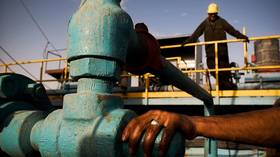Production halted at Libya’s biggest oilfield

Force majeure has been declared at Libya’s largest oilfield, Sharara, after protesters shut down the field, according to a statement released by the National Oil Company (NOC) on Sunday.
The company added that negotiations are ongoing to resume production at the site as soon as possible.
“The National Oil Corporation has declared a force majeure on the Sharara oilfield effective Sunday, January 7th, 2024, due to it’s closure by protesters,” the statement reads.
According to the company, the closure has resulted in the suspension of crude oil supplies from the field to the Zawiya export terminal.
The 300,000-barrel-per-day field in southern Libya has been occupied by protesters since Tuesday. They have been urging the government to address their demands, such as the provision of fuel and its derivatives in the region of Fezzan, the activation of a refinery project in the south, road infrastructure improvements, employment opportunities for local graduates, restructuring of the Fezzan Reconstruction Fund, as well as the revocation of an agreement between the Ministry of Health and the NOC regarding Ubari General Hospital.
Tribal leaders have called for dialogue, but say the camps will remain until action is taken. Oil fields in Libya are often besieged by local tribes, whose territory is occupied by extraction works, in attempts to address social problems.
Turmoil has plagued the once-prosperous African country since 2011, when longtime ruler Muammar Gaddafi was overthrown with the help of NATO. The events left Libya divided between two rival administrations – one in the capital, Tripoli, and the other in the eastern city of Tobruk. There have been several attempts to unite them under a single authority, but they have so far failed.
For more stories on economy & finance visit RT's business section












